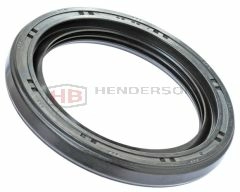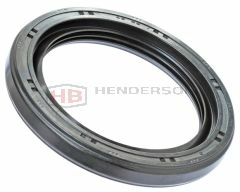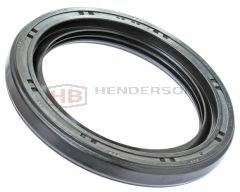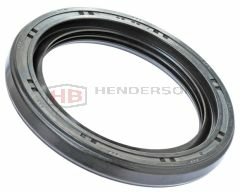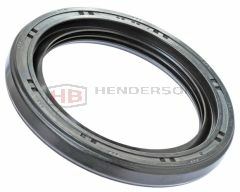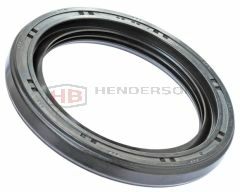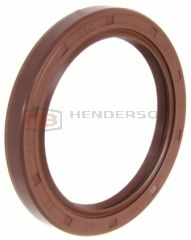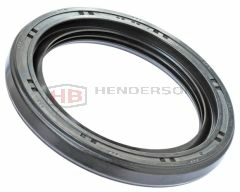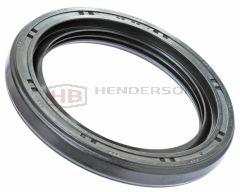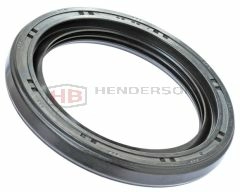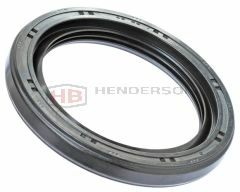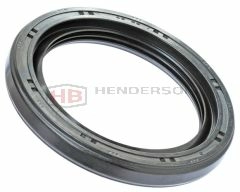Rotary Shaft Seals - 62mm
Oil seals described as a rotary shaft oil seal or lip seal, and can be manufactured in the following materials.
- Nitrile or NBR is the most commonly used material. Nitrile is excellent with most mineral oils and greases. Temperature range -65° to 225°F (-54° to 107°C) Normally coloured black
- Viton or FPM Premium lip material for the widest temperature range and chemical resistance. Temperature range from -40° to over 400°F (-40° to over 204°C) They resist most special lubricants and chemicals that can destroy nitrile, polyacrylates and silicones. This premium material, with its extreme resistance to abrasion, provides superior performance and wear. Normally coloured brown
- Lip Type
- R21 Rubber with single lip
- R23 Rubber with a wiper lip
- R4 Metal single lip
What does a rotary shaft seal do?
A rotary shaft seal is designed to maintain the functionality and efficiency of machinery by sealing the area where a rotating shaft extends through a component's housing. Its key roles are:
- Keeping lubricants in: It prevents oils or greases from leaking out of the machine, avoiding excessive wear and potential failure of machinery.
- Keeping contaminants out: It blocks dirt, water, or other environmental contaminants from entering the machinery, protecting the shaft and internal components from damage.
What is the best seal for a rotating shaft?
The ideal seal for a rotating shaft largely depends on specific operational factors such as shaft speed, environmental conditions, system pressure and temperature, and the fluid type involved. Popular options include:
- Mechanical seals: Best for high-pressure environments and when minimal leakage is crucial. These feature two flat surfaces, aligned with the rotating shaft and stationary housing, pressed tightly together.
- Lip seals: Also known as radial shaft seals, these are widely used across various sectors for their cost-effectiveness and reliable performance, suitable for moderate pressures and speeds.
Can an O-ring seal a rotating shaft?
O-rings are generally not recommended for sealing rotating shafts due to their suitability for static or slow-moving joints. High-speed rotations can cause O-rings to wear out rapidly due to friction and heat buildup. For such applications, different types of seals should be considered.
What type of seal is most commonly used to seal a rotating shaft?
The most commonly used seal for rotating shafts is the lip seal, or radial shaft seal. Characterized by a rubberized layer with a metal insert and a spring to maintain tension, these seals handle moderate speeds and temperatures effectively. Lip seals are preferred in various settings, from automotive engines to industrial machines, due to their affordability, ease of installation, and wide availability.
